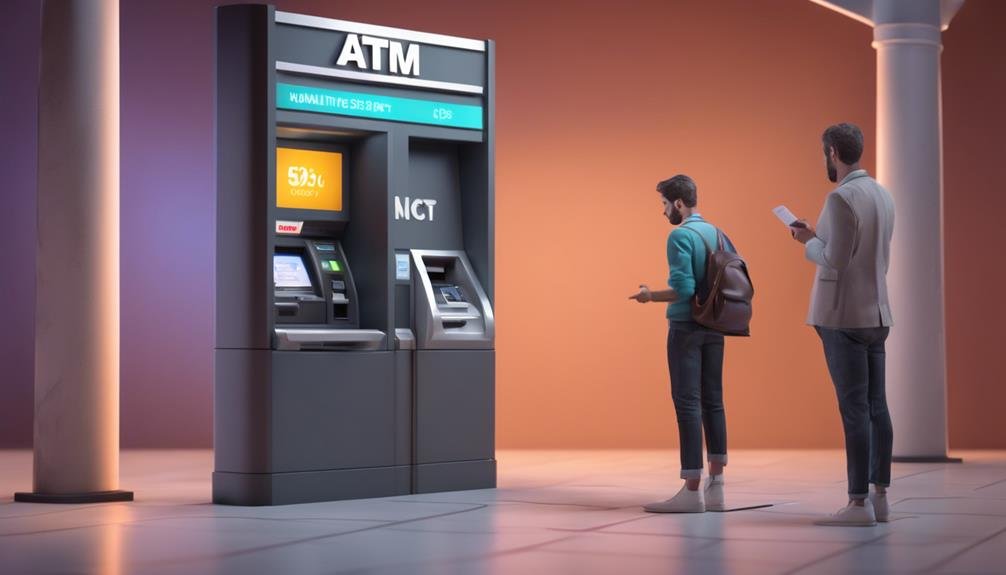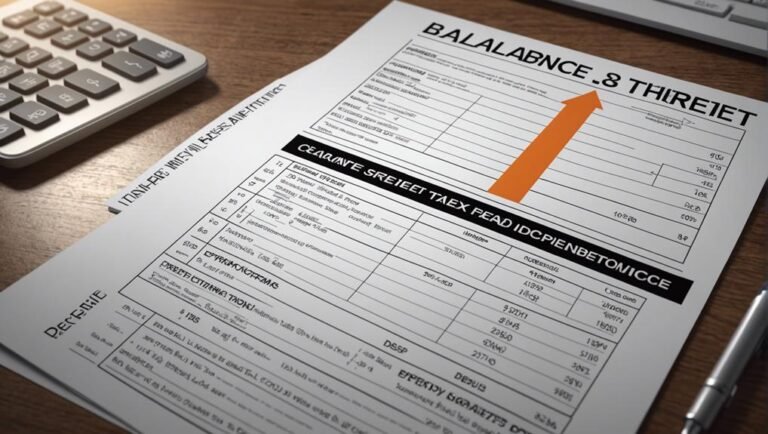Cash Advance: Definition, Types and Impact on Credit Score
When you obtain a cash advance, you’re taking a short-term loan for immediate needs, often carrying high fees and interest. Types include Merchant Cash Advances and Payday Loans, each with its own repayment method and potential pitfalls. While cash advances may not directly affect your credit score, high interest rates and heavy credit utilization could impact it indirectly. Consider pros like quick access to funds but be wary of accumulating debt due to expensive borrowing. To manage the impact wisely, understanding repayment plans and factors affecting cost-effectiveness is essential. Learn more details to make informed financial choices.
Key Takeaways
- Cash advances are short-term loans for immediate funding needs.
- Types include merchant cash advances and payday loans with varying terms.
- They don’t directly impact credit scores but can indirectly affect them.
- High-interest rates may pose challenges in making timely repayments.
- Managing repayments responsibly is crucial to minimize negative credit impact.
Definition of Cash Advance
In financial terms, a cash advance can be defined as a short-term loan typically obtained from a bank or alternative lender to meet immediate funding needs. This form of short-term borrowing is often used to address financial emergencies or cover unexpected expenses.
Cash advances provide individuals with quick access to cash, which can be vital in urgent situations where traditional loan approval processes may be too lengthy. When facing unforeseen circumstances such as medical bills or car repairs, opting for a cash advance can provide the necessary funds promptly.
Additionally, cash advance for gig workers is a popular option, as it allows those without a steady paycheck to access funds quickly, ensuring they can meet financial needs even between gigs.
However, it’s important to take into account the associated fees and interest rates to ensure that this form of borrowing is the most suitable solution for your current financial situation and needs.
Types of Cash Advances
Cash advances encompass various forms of short-term lending options available to individuals in need of immediate funds, each serving distinct purposes and carrying specific terms and conditions. Two common types are Merchant Cash Advances and Payday Loans. Here’s a comparison table:
| Types of Cash Advances | Description | Key Features |
|---|---|---|
| Merchant Cash Advances | Used by businesses with imperfect credit; repaid via future credit card receipts | Quick access to funds; tailored for businesses |
| Payday Loans | High fees and interest rates exceeding 100%; often lead to excessive rollovers | Fast cash for emergencies; significant potential costs |
Understanding the differences between these types can help you make informed decisions when considering a cash advance.
Impact on Credit Scores
Understanding how cash advances impact credit scores is essential for making informed financial decisions, especially considering the potential ramifications on your financial health. Cash advances themselves don’t directly impact credit scores, but they can indirectly affect them.
High-interest rates associated with cash advances may lead to challenges in making timely payments, which are vital for maintaining a good credit score. Additionally, utilizing a significant portion of your available credit through cash advances can increase your credit utilization ratio, potentially lowering your credit score.
It’s important to carefully consider these factors before opting for a cash advance to make sure that you can manage the repayments responsibly and minimize any negative impact on your credit score.
Pros and Cons Analysis
Analyzing the advantages and disadvantages of utilizing cash advances can provide valuable insights into the financial implications of this borrowing option. When considering cash advances, it’s essential to weigh the pros and cons to make an informed decision. Here is a breakdown of the benefits and drawbacks:
- Flexibility Benefits:
- Cash advances offer quick access to funds in emergencies.
- They provide more flexibility regarding usage compared to traditional loans.
- Emergency Funding Drawbacks:
- High-interest rates and fees associated with cash advances can make them an expensive borrowing option.
- Relying on cash advances for frequent or non-urgent expenses can lead to a cycle of debt accumulation.
Careful consideration of these factors is important before opting for a cash advance.
Repayment Plan Considerations
Considering the financial implications of utilizing cash advances, it’s crucial to carefully evaluate and establish a solid repayment plan to mitigate potential risks and guarantee responsible borrowing practices.
When contemplating a cash advance, it’s vital to incorporate budgeting strategies into your plan to make sure you can comfortably meet repayment obligations. Assess your current financial situation and determine how much you can realistically allocate towards repayment without compromising other financial responsibilities.
Create a detailed budget that prioritizes timely repayment of the cash advance to avoid accruing excessive interest and fees. By exercising financial responsibility and adhering to a well-thought-out repayment plan, you can effectively manage the impact of cash advances on your overall financial health.
Cost-Effectiveness Factors
When contemplating the cost-effectiveness of utilizing cash advances, it’s crucial to assess the overall financial impact to make informed borrowing decisions. Here are four factors to contemplate regarding budget planning and financial implications:
- Interest Rates: Compare the interest rates of cash advances with other borrowing options to make sure you aren’t overpaying.
- Fees: Take into consideration any additional fees associated with cash advances, such as transaction fees or cash advance fees.
- Repayment Terms: Understand the repayment terms, including due dates and penalties for late payments, to avoid financial strain.
- Budget Planning: Evaluate your current budget and assess whether taking a cash advance aligns with your financial goals and long-term financial health.
Additional Resources
For a thorough understanding of cash advances and related practices, exploring additional resources can provide valuable insights and guidance.
When considering unsecured loans, it’s important to note that they don’t require collateral, distinguishing them from payday loans.
Future advance clauses, while offering additional loan funds, may incur late fees for delayed payments.
To investigate further into the intricacies of cash advances, sources like Capital One, the Office of the Comptroller of the Currency, Nav, and the Consumer Financial Protection Bureau can offer detailed information and guidance.
Conclusion
To sum up, maneuvering through the world of cash advances requires careful consideration of the benefits and risks involved. Just like a skilled chess player strategically plans their next move, understanding the implications on your credit score is essential in making informed financial decisions.
By grasping the definition, types, and impact of cash advances, you can navigate through the complexities of borrowing with confidence and foresight. Remember, knowledge is power in the game of financial management.







